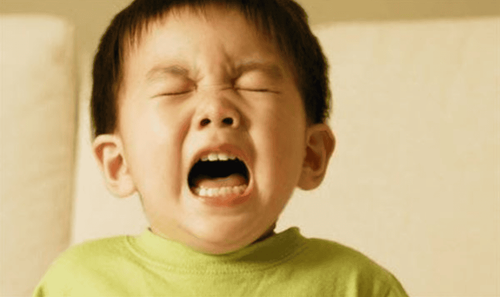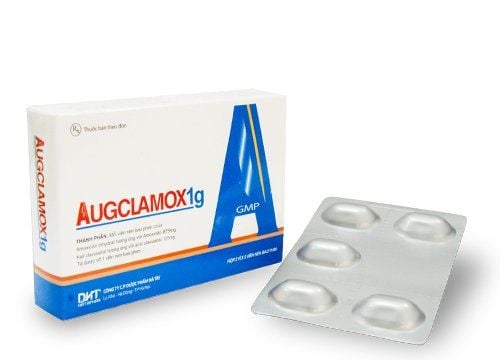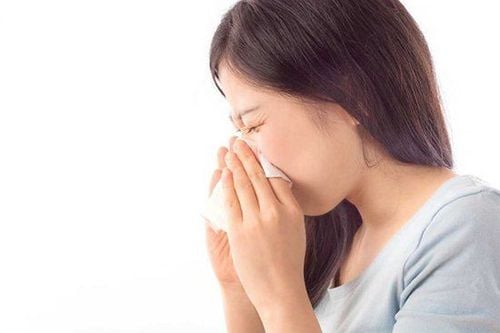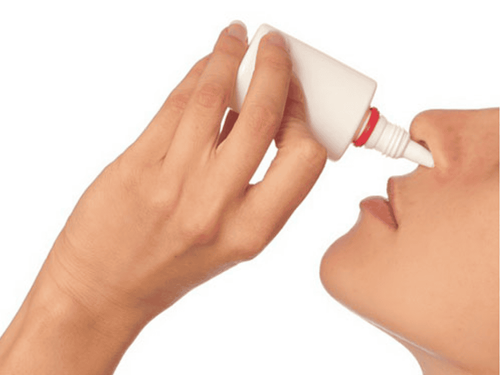This is an automatically translated article.
Children often sneeze is a common concern of many parents. So is this a sign that the baby has health problems? Learn about the causes and remedies if your child sneezes.
1. Is it normal for children to sneeze often?
If you see a child sneezing a lot, parents should not be too worried because this is a sign that the child's body is still having good reflexes. Specifically, a baby's sneeze is a reflex controlled by the nervous system to clear dust particles or foreign objects in the airways, helping to clear congestion in the airways. Because the air we breathe is full of dust particles, chemicals, germs, pollutants and other impurities, the body has to clear them naturally by sneezing.
The sneeze reflex helps to clear the baby's airways so that air can naturally go in and out of the nose. So, if a young child coughs and sneezes but doesn't have a fever or is accompanied by other symptoms such as wheezing, rash, etc., parents do not need to worry that the baby has a serious health problem. However, if the child sneezes continuously for a long time, parents should take the child to a doctor to find out the cause and have a timely remedy.
2. Why children often sneeze and how to fix it
Sneezing is common in children and can be caused by the following:
2.1. Babies need to clear their airways. With newborns, they will breathe through their noses, and it takes about 3 to 4 months after birth to learn how to breathe through their mouths. Therefore, whenever there is a foreign object in the airways such as nasal rust, dust, mucus, etc., which interferes with the respiratory process, the child will sneeze frequently to clear the airway and help with normal breathing.
How to fix: Parents should clean the baby's nose by instilling physiological saline into the baby's nose twice a day (morning and evening or after bathing), combined with a small cotton swab to clean the baby's nose. .
2.2. Blocked nostrils cause children to sneeze often Children's nostrils are often blocked. With a nursing baby, when being breastfed, one side of the baby's nostrils (the side pressed against the mother's body) may be pressed, making it easy to get blocked. This often causes children to sneeze a lot right after. Some other causes are that children need to clean their airways due to dust, rust, etc.
How to fix: When breastfeeding, you should observe, avoid letting the baby's face and nose be too close to the mother's body. If the cause of the child's nose is blocked due to dust, nasal rust, parents apply the instructions above.
2.3. Children's nostrils are small Children often sneeze because the nostrils are narrower than adults. Because the nostrils are small, the dust particles in the air are easily trapped in the nose, causing the baby to sneeze a lot to expel the dust from the airways.
How to fix: Parents should drop physiological saline into the baby's nose and then clean it with a small cotton swab. At the same time, parents should pay attention to limit taking children to areas with lots of dust, polluted environment,...

Một số trẻ bị hắt hơi do tình trạng lỗ mũi của trẻ bị nhỏ
2.4. The weather is too dry This is also a reason why children often sneeze. Because the child is quite young, the mucus in his nose dries up quite quickly, especially when the weather is cold, dry or when the baby is living in an air-conditioned room. As a result, your baby will sneeze more often.
How to fix: Parents should use an air humidifier in the room to balance the humidity. Also, avoid keeping your baby in an air-conditioned room constantly.
2.5. Contaminated air Inhaling irritants such as incense smoke, cigarette smoke, kitchen oil fumes, dust particles, pet hair, strong-smelling perfumes, etc. in the air are also causes of air pollution. Children often sneeze. Since children cannot snort or exhale like adults to get rid of these triggers, they can only sneeze continuously.
In addition, many children also sneeze after vomiting. That's because after vomiting, milk or food can enter the child's airway, causing irritation causing the child to sneeze.
How to fix: Parents need to minimize the risk of indoor air pollution, keeping the living space airy. You should limit burning incense, do not let anyone smoke in the house, vacuum the house regularly, open the door to let the air circulate, install an air purifier,... Parents should not let the child lie down immediately after feeding or eating.
2.6. Your child has a fever or is sick The child's sneezing is also a warning sign that the child has a cold. Common cold symptoms include: Upper respiratory tract infection, cough, sneezing and runny nose. Because the child's immune system is not yet mature, it is easy to catch colds from other family members.
How to fix it: Parents need to make sure that anyone who comes into contact with their baby has properly washed their hands and is clean. People who are sick, cold or cough should avoid contact with children. If the child has a cold, parents should take the child to the doctor immediately to avoid a more severe respiratory infection.
2.7. Children with allergies Children who often sneeze can be caused by allergic rhinitis (hay fever). Inhaling particulate matter in the air causes the body of some children to develop an allergic reaction, leading to hay fever. In addition, this condition can also appear due to inhalation of animal hair, dust pollution, pollen or insect bites,...
Remedy: The fact that parents cannot be completely protected Children avoid the allergens completely. Therefore, when the baby has a constant sneezing due to allergies, parents should take the child to the doctor to be prescribed an antihistamine to help relieve the symptoms.

Tình trạng viêm mũi dị ứng có thể khiến trẻ bị hắt hơi
3. When should you take your child who has a cough or sneeze to see a doctor?
It is normal for children to sneeze frequently and continuously for a short period of time. However, if the child has a lot of sneezing, accompanied by symptoms such as fever, cough, runny nose, ... then parents should take the child to see a doctor for an accurate diagnosis of the child's health status. little.
In particular, if the child has the following symptoms, parents should take the child to the doctor immediately:
Rapid breathing or gasping: Signs that the child is having difficulty breathing; Breathing hard, tired when breathing: Signs that the child has trouble breathing; Children eat less than before, tired, sluggish,...; Children sleeping more than usual, people lethargic, ... Children who often sneeze may be a normal reflex of the body or a sign that the baby is suffering from some respiratory disease. Therefore, parents need to pay attention to their children's symptoms to promptly take them to see a doctor, help diagnose and treat health problems early. Currently, the Pediatrics Department at Vinmec International General Hospital is trusted by many parents to examine the diseases that infants and young children are susceptible to. Vinmec brings satisfaction to customers and is highly appreciated by industry experts by:
Gathering a team of leading pediatricians: including leading experts with high professional qualifications ( professor, associate professor, doctorate, master), experienced, worked at major hospitals such as Bach Mai, 108.. The doctors are well-trained, professional, have a heart - a vision. Understanding young psychology. In addition to domestic pediatric specialists, the Department of Pediatrics also has the participation of foreign experts (Japan, Singapore, Australia, USA) who are always pioneers in applying the latest and most effective treatment regimens. . Comprehensive services: In the field of Pediatrics, Vinmec provides a series of continuous medical examination and treatment services from Newborn to Pediatric and Vaccine,... according to international standards to help parents take care of their baby's health from birth to childhood. Advanced techniques: Vinmec has successfully deployed many specialized techniques to make the treatment of difficult diseases in Pediatrics more effective: neurosurgery - skull surgery, stem cell transplantation blood in cancer treatment. Professional care: In addition to understanding children's psychology, Vinmec also pays special attention to the children's play space, helping them to play comfortably and get used to the hospital's environment, cooperate in treatment, improve the efficiency of medical treatment.













